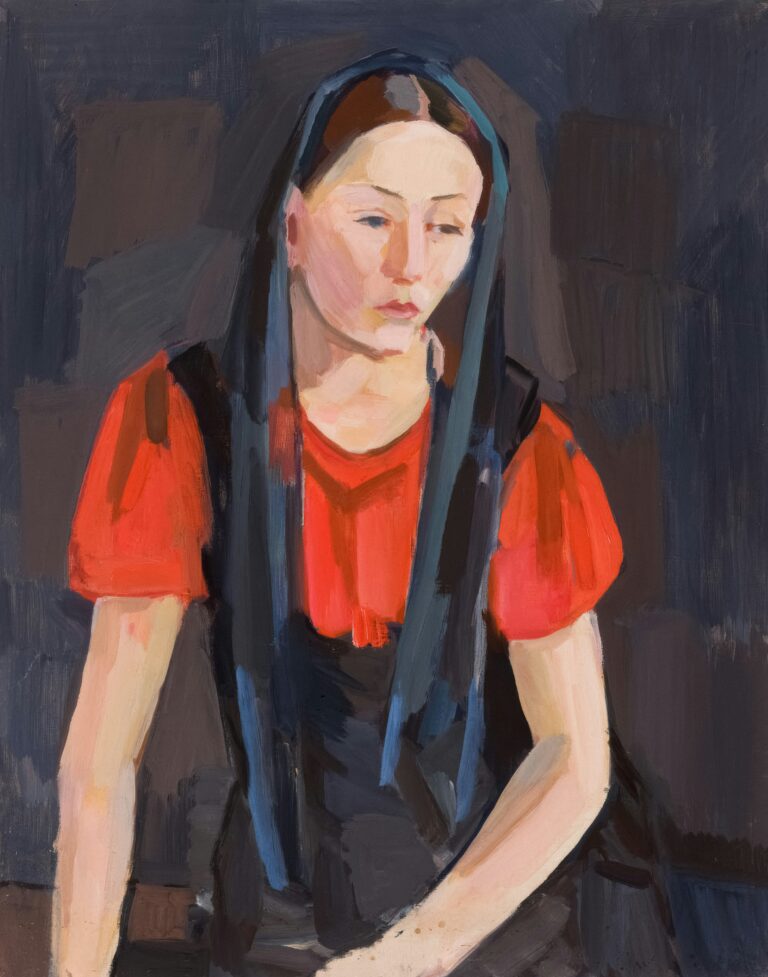Is OCD Treatable Without Medication?
Medically Reviewed By – Juliet Gustafson, LMSW

When it comes to mental health disorders partaking in medicinal treatment is often frowned upon. This is of course due to the stigma surrounding the many side effects of these drugs. However, as science and technology advances side effects of such drugs have decreased exponentially.
OCD is no different in these regards as medications such as SSRI’s are proven to yield effective results with a combination of psychotherapeutic sessions. Yet, the question still remains Is OCD Treatable Without Medication?
This post answers Is OCD Treatable Without Medication?
What is OCD?
Obsessive-Compulsive Disorder (OCD) is a mental health disorder characterized by recurring unwanted thoughts, images, or impulses known as obsessive thoughts , as well as repetitive behaviors or mental acts known as compulsions.
These obsessive thoughts and compulsions can significantly interfere with a person’s daily life, causing distress and impairing their ability to function effectively.
Obsessions in OCD are intrusive and persistent thoughts, urges, or images that are typically disturbing and anxiety-provoking.
Common obsessions include fears of contamination or germs, doubts about safety or the possibility of harm, a need for symmetry or exactness, aggressive or taboo thoughts, and excessive concern with order or arrangement.
Compulsions, on the other hand, are repetitive behaviors or mental acts that individuals with OCD feel driven to perform in response to their obsessions. These behaviors are aimed at reducing anxiety or preventing a feared event.
Common compulsions include excessive handwashing or cleaning, checking behaviors (e.g., repeatedly checking locks or appliances), counting, seek reassurance or repeating certain words or phrases, arranging or organizing objects in a specific way, and other forms.
People with OCD often recognize that their obsessions and compulsions are excessive or irrational, but they find it challenging to control or resist them.
The cycle of obsessions and compulsions can become time-consuming and can interfere with daily activities, social relationships, and overall quality of life.
Can You Overcome OCD Without Medication?
Can you overcome OCD without medication? Yes. Is it a simple walk in the park? Not for everyone.
As we discussed in previous posts, there is no definite cure for OCD hence its why it’s chronic. However, there are ways to control, cope and conquer ocd.
Thanks to the endless amount of studies conducted on the matter, a mix of psychotherapy and meditation is the most effective way to manage the disease.
Please remember that through treatment, many people with OCD are able to significantly decrease their symptoms and go on to live joyful and meaningful lives!
It is important to understand that overcoming OCD without medication is when OCD is less severe. Subclinical to mild OCD symptoms are fairly manageable using a couple of psychotherapy strategies such as ERP.
Furthermore, patients (ocd sufferers) who experience moderate to severe OCD symptoms may find it difficult to manage OCD without medication.
Related Article(s) – What is Obsessive-Compulsive Disorder?
How is OCD Treated?
OCD treatment may not result in a definite cure to the disease, however its main purpose is to lower the severity of symptoms.
OCD is treated in a multitude of ways including psychotherapy and medication. We stated earlier that the most effective treatment method is a combination of psychotherapy sessions and medication such as SSRI (Selective Serotonin Reuptake Inhibitors).
What to Expect in a Treatment Plan for OCD
The first step in OCD treatment is to receive a diagnosis of OCD. This can be done by scheduling an evaluation with a therapist or a mental health professional who specializes in OCD. From here, you may expect your treatment to go similar to the list below:
1 – A detailed evaluation of OCD symptoms and potential Comorbid disorders (mood disorders) including a clinical interview with your psychologist and psychiatrist if necessary.
2 – Decision on treatment setting (outpatient vs. inpatient) is dependent upon severity of OCD symptoms identified in step 1.
3 – Psycho-education on the nature of the disease, its history, development and diagnosis shared with the patient and his/her family members.
4 – Choice of first line treatment seen fit by your therapist (OCD Medication vs. psychotherapy or a combination of both)
5 – If medication is recommended by a therapist or a mental health professional, you will be referred to a psychiatrist.
Your psychiatrist will inform you about your symptoms, answer questions about common ocd medication side effects, and help you decide if medication is the right treatment for you.
Once your course of action is established, you and your therapist will work on tools and interventions to help you face your fears in hopes of treating ocd.
Thus, decrease compulsions such as (repeated hand washing) and regain a sense of control over your Obsessive Compulsive Disorder (ocd).
OCD Therapy Techniques

There are several effective treatment options available for treating ocd. The two main approaches are psychotherapy and ocd medication, often used in combination for the best outcomes. Here are some common therapies used in the treatment of OCD:
Cognitive-Behavioral Therapy (CBT): CBT is the most widely recommended psychotherapy (talk therapy) for OCD. It involves two main components: exposure and response prevention (ERP) and cognitive therapy.
In ERP, individuals are gradually exposed to situations or objects that trigger their obsessions, while they are prevented from engaging in the corresponding compulsive behaviors.
This helps to break the cycle of anxiety and other factors. Cognitive therapy focuses on identifying and challenging irrational beliefs or thought patterns related to OCD. ERP is an extremely effective way to treat ocd.
OCD Medication: Selective Serotonin Reuptake Inhibitors (SSRIs) are often prescribed as the first-line medication for OCD. These antidepressant medications help to increase the levels of serotonin in the brain, which can alleviate symptoms of OCD.
Examples of SSRIs commonly used for OCD treatment include fluoxetine, sertraline, and fluvoxamine. Other medications, such as clomipramine (a tricyclic antidepressant), may also be used in certain cases.
Augmentation Strategies: In some cases, if a person does not respond sufficiently to an SSRI alone, other medications may be added or combined with the existing treatment.
This is known as augmentation therapy and may include antipsychotic medications or other antidepressants.
Mindfulness-Based Therapies: Mindfulness-based therapies, such as Acceptance and Commitment Therapy (ACT) and Mindfulness-Based Cognitive Therapy (MBCT), can also be beneficial for individuals with OCD.
These approaches help individuals develop awareness and acceptance of their intrusive thoughts and urges, allowing them to respond to them more effectively.
Support Groups: Participating in support groups or group therapy with individuals who have similar experiences can provide a sense of community and understanding.
Sharing experiences, coping strategies, and receiving support from others can be valuable in managing OCD symptoms.
It’s important to note that treatment for OCD is highly individualized, and what works for one person may not work for another. A mental health professional, such as a psychologist or psychiatrist, can assess the severity of the OCD symptoms and recommend the most appropriate treatment approach based on the individual’s specific needs.
Related Article(s) – The 3 Proven Treatments Of OCD
Understanding the OCD Recovery Process
One thing to understand when it comes to recovery is that it’s never linear. The road ahead is a bumpy one and is full of ups and downs so, keep that in mind as this is the nature of the ocd cycle.
First of all, we must define what recovery means when it comes to OCD. An optimistic look on recovery could mean the withdrawal of symptoms altogether.
However, this is not always the case as OCD does not have a definite cure. This said, through treatment such as response therapy, online therapy, exposure and response prevention , any intrusive thought becomes much more manageable.
Interested in more? – Download your FREE OCD Worksheets Now!
Secondly, an OCD patient should always study and analyze their own OCD. This means trying to figure out potential triggers (obsessive thoughts, unwanted thoughts and compulsive behaviors) that could negatively influence OCD symptoms in the short and long run.
Stressful situations, trauma and overall life events (such as a breakup or death of a loved one) are considered triggers for Obsessive Compulsive Disorder (ocd)
Analysis of OCD symptoms is crucial in recovery.
Thirdly, take OCD treatment very seriously. Treatment works based on the person’s ability and willingness to put in the effort. According to a recent study conducted by The Journal Of Affective Disorders, “The magnitude of improvement in people assigned to a no-treatment control group was negligible”.
Furthermore, only 4% of ocd sufferers experienced symptom remission proving that OCD symptoms rarely go away.
Can OCD be Cured Permanently?
No, OCD cannot be cured permanently. Heck, OCD cannot be cured at all. Since the first moment an individual is diagnosed with OCD, he/she will likely live with it for the rest of their lives. This does not mean that you are a bad person, it’s just the nature of the mental health condition.
This is why learning to live with OCD is very crucial. Educating yourself on the (ins and outs) such as compulsive behavior, intrusive thought and thought suppression of the disease will help you tremendously in the long run.
Knowing that there is no cure for OCD, is the cure for OCD. Accepting the nature of the disorder (obsessions and compulsions) and how these thoughts have no power over you no matter how scary they may feel is the cure. Not reacting to intrusive thoughts, obsessions compulsions is also key.
Is OCD Treatable Without Medication?
In conclusion, Obsessive-Compulsive Disorder (OCD) is a treatable condition even without the use of medication. While medication can be beneficial for managing symptoms in some cases, cognitive-behavioral therapy (CBT), particularly Exposure and Response Prevention (ERP), has been proven to be highly effective as a standalone treatment for OCD.
Through CBT, individuals learn to confront their obsessions (feared situations/ triggering situation), resist the urge to engage in compulsions (reassurance seeking), and develop healthier coping mechanisms to withstand anxiety.
Studies have shown that CBT can be as effective as medication and often leads to long-lasting results in most people.
The choice of treatment, whether medication or therapy, should be based on individual needs and preferences. Consulting with a mental health professional who specializes in OCD treatment can help determine the most appropriate approach for each person. With the right treatment and support, any ocd sufferer can experience significant improvement and lead a fulfilling life.
This post was all about Is OCD Treatable Without Medication?





